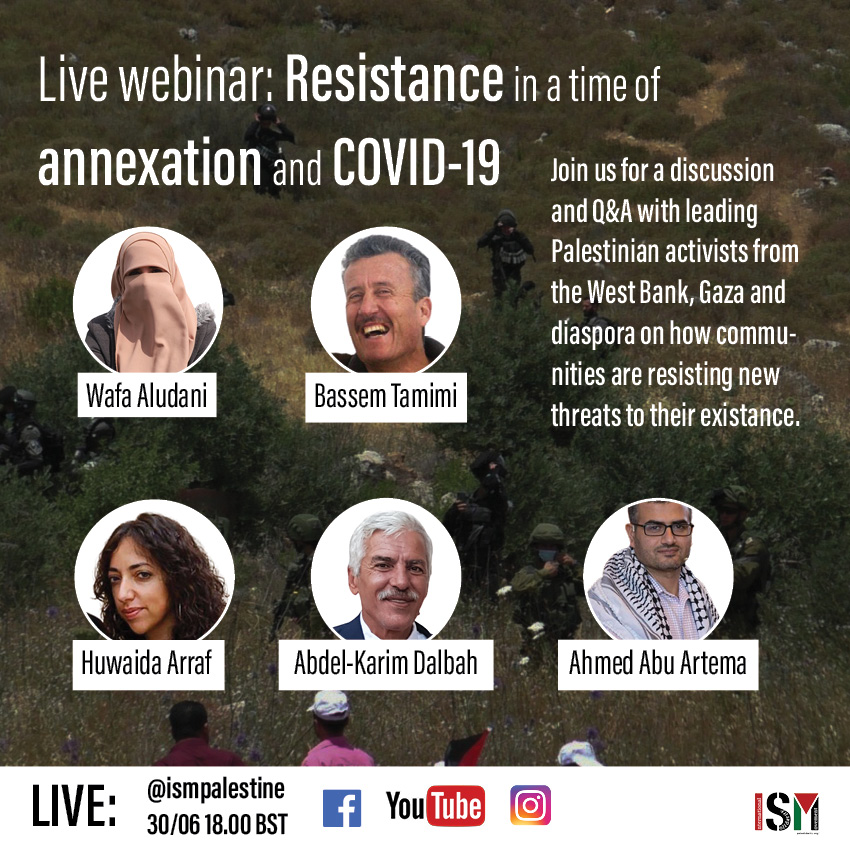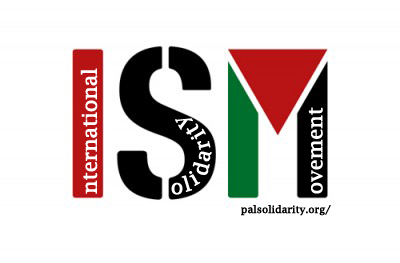-
Webinar: International Solidarity & Resisting Colonization
Join ISM Northern California on Saturday, December 19, 2020, for a webinar to learn about the current situation on the ground in Palestine, grassroots resistance, and the work of the International Solidarity Movement.
-
Resistance in a time of annexation and Covid-19 – an ISM webinar
ISM will be hosting a webinar on June 30th, Tuesday 20:00 Ramallah time, on annexation, COVID-19, resistance and international solidarity with the Palestinian struggle for equality and justice.
-
Keep Palestinian-led activism alive during COVID-19
ISM’s human rights activism faces an unprecedented challenge in the current COVID-19 pandemic, international travel bans and global economic down turn. We ask for your support to help us maintain our ongoing projects and keep our offices ready to resume on the ground international solidarity and action for Palestine when the virus is contained.
Action Alert An Nabi Saleh Apartheid Wall Arrests BDS Bethlehem Bil'in Cast Lead Demonstration Denial of Entry Ethnic Cleansing Farmers Gaza Global Actions Hebron House Demolition International law Israeli Army Jerusalem Live Ammunition Nablus Ni'lin Prisoner Ramallah Rubber-coated steel bullets Settlement Settlers Settler violence Tear-Gas Canister Video



